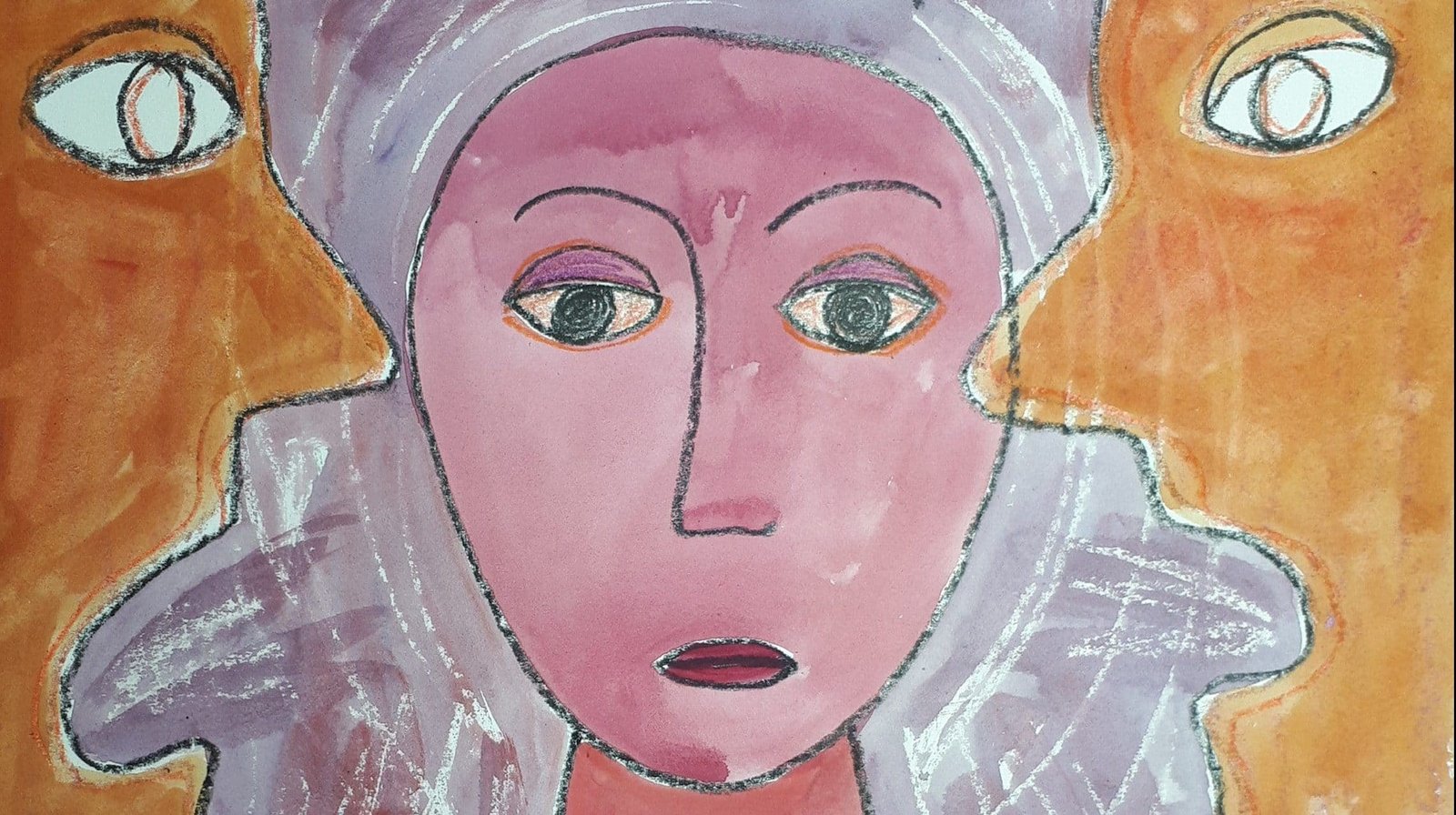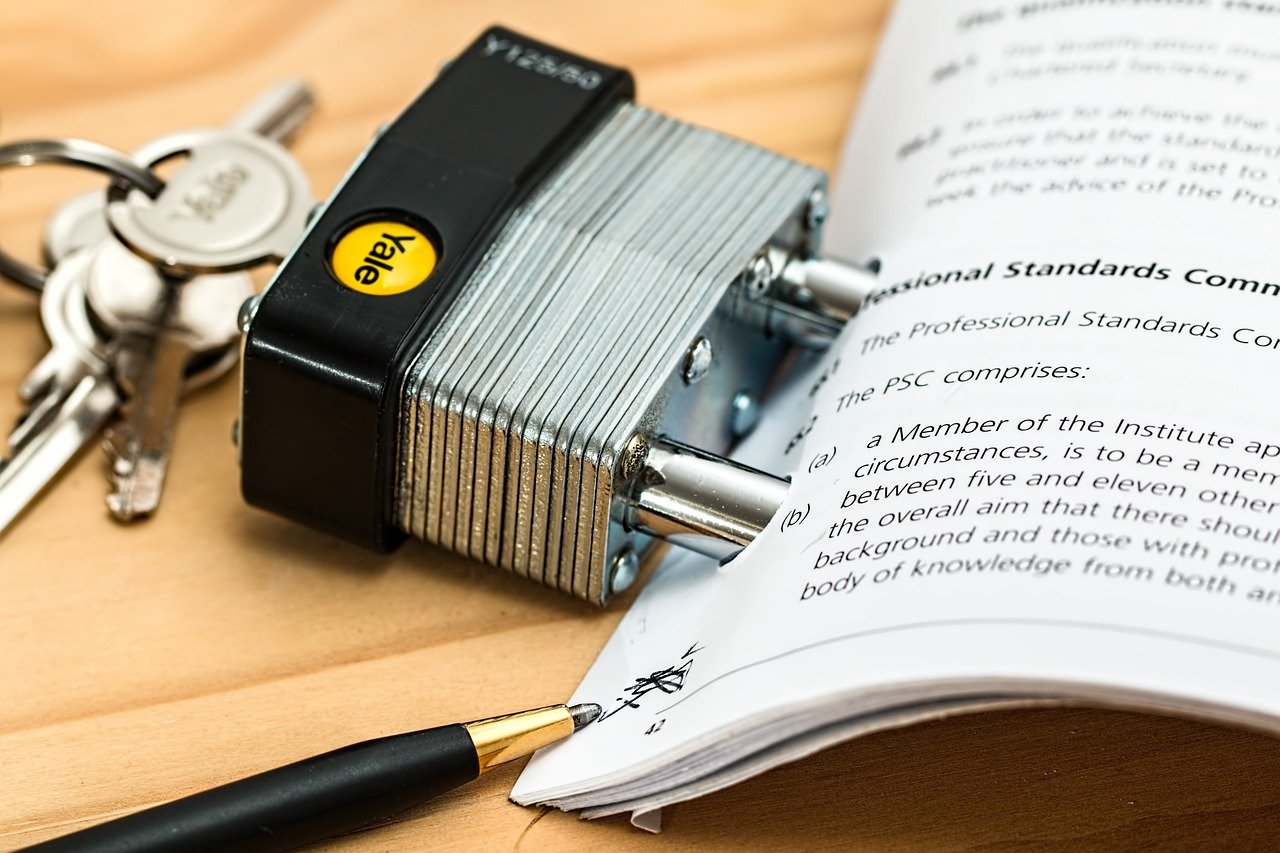This article was originally commissioned by Welldoing, who refused its publication.
Farah Damji is the managing editor of The View Magazine, a magazine for women with conviction. She is a former prisoner and a woman in conflict with the law. She writes about her own experience of mental health and recovery and how The View challenges our stereotypes about women in the criminal justice system. The View shines a light on how women with serious mental health diagnosis are treated.
I had started The View in HMP Downview, after the Governor and several of the women asked me to help put something together. Unfortunately it was not quite the glossy brochure for HMPPS that the prison system might have liked, and it was banned! I had given a draft copy to my solicitor Sara Watson and when I was released, after an oral Parole Board hearing, we decided we would produce it in the community. I was more determined than ever, after the Parole Board made a finding of unlawful detention, after 15 wasted months of my life and spiralling into depression, that I would get the help I needed for the newly diagnosed C- PTSD and that my shocking experiences would help other women in the prison predicament.
Mental health had gone mainstream with every footballer and charming prince talking about his personal battle, yet no one was saying anything about prisoner mental health. The View was to become our platform to tell the world how mental health was serviced in the prison estate. Women with the most serious mental health problems, women who have acute anxiety and depression , who hear voices and are diagnosed with schizophrenia and personality disorders are not getting the help they need, in prison. The View gives them a safe space to articulate what is happening to them, how they need help and what they are going through.
We want to bring about a major policy shift in the way we incarcerate vulnerable women and women who have been abused, and remain victims of the system by being imprisoned, with no help. Over £600m a year is spent on Justice Health Contracts yet over 80% of prisoners can’t access these services and reoffending is costing over £13billion a year. We are asking for a binding inquiry into the way women are treated in the criminal justice system and for a diversion of these funds to provide holistic community mental health and psychosocial interventions. It is estimated that of the 3,800 women in prison now, only 10% are truly dangerous to themselves or to society.
My Story
I realised I was different from the other little girls in my all-white private school in suburban northwest London when I was about 11. It was not just the othering of being a different colour and coming from a different place, it was the sense of simply not belonging. Anywhere. At home I felt left out, as the eldest of three, my siblings were close. I was largely left alone by my parents, too miserable in their dysfunctional marriage to notice a child in distress.
This manifested with fainting fits at 11 and emotional tantrums and tearfulness, that made my mother take me to a Harley Street psychiatrist. Various forms of therapy have continued through most of my childhood and into my adult life. I found some respite through creativity, my art and writing required concentration, I had to silence the dissonance in my mind to be able to focus.
My emotional pain manifested in different ways, through pulling my hair out, and not telling my mother why bald patches were appearing, so again, being dragged off to a specialist and given cream to counter alopecia. I also experimented with pills and alcohol. I remember an early failed suicide attempt when the hospital made me drink something black and treacly, to force me to vomit.
As soon as I was old enough, I left home and chased a wild dream to go and live in New York City, the epicentre of mental health madness and I tried everything from intensive psychoanalysis, art therapy, shamanism and hypnotism to naturopathy, CBT, Tibetan Bell and Buddhism, to try and find some peace in my mind. Each brought about some sort of temporary respite and then the cacophony of C-PTSD filled up that safe space.
Panic and Chaos
I was misdiagnosed with Narcissistic Personality Disorder and Emotionally Unstable Personality disorder very early on. I wonder now, if I had had the correct diagnosis and one of many psychiatrists had bothered to look beyond headline symptoms, if my life might have turned out differently. I have been in trouble with the law repeatedly and endless forensic reports have been put before the courts but Judges just ignore them, or use them against me, rather than to help me. Now, with hindsight and a little self compassion, I can see that these ‘criminal’ acts were cries for help. Instead they got me deeper and deeper into trouble. Once a woman is caught in the criminal justice system, like a fixated, jealous partner, it never ever wants to let you go. You are stuck, pinned, like a butterfly in a museum cabinet drawer, under glass. Stalked.
I have never used my mental health as an excuse. I have always been ashamed about being different. My suffering is not a talisman I wear lightly or with any grace. For the longest time, I denied I had any mental health problems, but when I look back at my life dispassionately and the repeated traumas and incidents of violence and instability that started so young, it would be incredible if I were not affected in any way. My decisions about everything including work and relationships were marked with impulsivity and a lack of care for my personal safety or wellbeing. Situations I found myself in, into which I immersed myself, were dangerous and frightening. Something inured me to the insecurity and the sense of verging into catastrophe and time and time again I have had to pick up the pieces of a life that I had self destructed.
All of this action-packed living was interspersed with wanting to understand my mind and why I was making the choices and decisions that I was making. Sometimes I felt like an automaton, completely unaccountable or detached from what I was doing. I was experiencing dissociation in my everyday life to such an extent, I stopped feeling. During therapy, going back into a connected zone was too hard to do, but I do believe that these sessions were good for me. Somehow it proves to me that I wanted healing, in spite of all the chaos and the drama. I wanted to get better and discover the part of me that had been emotionally abandoned, and to nurture her into safety and womanhood.
Depression, anxiety, free floating fear and food disorders affected my mood and my spirit and I felt trapped inside the illness which I couldn’t name and therefore couldn’t tame. I have taken all sorts of anxiety and depression medication, which only served to suppress and dampen the emotions, without treating any of the symptoms. I tried mindfulness and meditation, they seemed to help and I started to focus on my painting more. The more I did it, the deeper I could immerse myself in something contemplative, I found a glimmer of joy, and hopefulness settled in.
Prison is the hardest place for women who are suffering from trauma. The constant crashing sounds, the lack of respect and boundaries and the meaningless adherence to pretty rules and quick punishments, erode any residual self esteem. I have never found the women in prison problematic and generally the officers are equally as traumatised and bewildered as the women, but the system itself which is run by managerial technocrats with little experience of life , leads to dysfunctional and harmful prisons. At HMP Downview, when I was there, it was one of the most notorious prisons in the women’s prison estate; there had been 4 recent deaths in custody and of recently released women and self harm was reaching epidemic levels. Rape and sexual encounters between staff at the managerial level and prisoners were flagrant.
I had been brought there on a recall for daring to post 2 rude tweets about the National Probation Service which had recently been part privatised. I was being ‘managed’ by people who simply did not have a clue and who just couldn’t deal with the heightened traumatic episodes I was suffering. They seemed, to me, completely oblivious to my concerns and my personal safety.
Prison is bad enough but you find a way to get your head around it when you are serving a sentence for something you have done. Perhaps there is resignation to the societal justification for letting judges and courts mete out retribution. There is no such thing as rehabilitation in women’s prisons and they serve as a dumping ground for women we don’t like, women who we don’t understand and those who society feels are useless or are not deemed redeemable. Mental health services are provided by NHS Foundation Trusts and private contractors. We are currently experiencing the highest rates of self harm and suicide in the women’s estate because women simply cannot access these services. Over 100 women have killed themselves in just over 10 years and still, we have the highest rates of incarceration of women for non violent crimes in Western Europe.
Towards Healing
I struggled with the recall, and because the prison service cuts down tall poppies, I was not given a job in prison on the pretence of high risk of harm to prisoners, staff and the tobacco stained walls, which meant I was basically locked up for most of the day. My mental health deteriorated and again, no mental health support was forthcoming, although part of the Probation Service’s excuse to recall me was to get a new mental health formulation. I insisted on seeing the psychologist and eventually I did. The Personality Disorder lead at HMP Downview decided I did not meet the criteria to attend her PD group, although I completed the initial Options Group and found some of the tools quite helpful. I find the whole concept of Personality Disorders alienating, frightening and really harmful, particularly for women. Society is keen to pathologise and to label us mad, bad and dangerous, and a PD diagnosis is the key to losing your freedom in the criminal justice system.
My barrister recommended Graham Rogers and finally I was seen by him. Graham was the first psychologist to really spend some time with me and undertook a whole battery of tests and evaluations, not just the tick boxing ones that would give him the standard prison forensic psychology answers. When I was ghosted to HMP Newhall hundreds of miles away, although the prison was aware that I was in a parole window and that I needed him to finish his report before the hearing, he travelled hundreds of miles to see me. Graham stated the misdiagnosis and that I was being further retraumatised by being in the prison system, which was brutalising me for standing up for myself and demanding my rights should be observed.
I am in recovery now, from the misdiagnosis, from the continued victimisation and mistreatment by the prison service, from angry, shouty and misinformed badly trained judges and from myself. I have had to learn to be a lot kinder and nicer, mainly to me, and to extend that compassion that I feel for my vulnerable and voiceless sisters incarcerated, to others. I feel that my recovery is intertwined with the trauma I have to deal with on a daily basis and the pain that is all around when you start to glimpse and shed light into the darkened corners of our criminal justice system. I have to know when to stop. They say that sunlight is the best disinfectant. This is our scourge.
The first issue of The View has just been published and distributed and it is available online and through selected book sellers and newsagents. It is the testimony of over 50 women in prison and many others on license in the community, through their art, writing and poems and also their personal stories about trying to access mental health. It is a powerful and compelling achievement. This is the first time that the public can actually understand what women in the criminal justice system go through. I don’t seek anyone’s forgiveness or to mitigate some of the awful crimes some of us have committed, I am simply asking that we reconsider, as a mature, decent society, whether incarceration of these women, someone’s wife, someone’s sister, someone’s mother, someone’s daughter – is the best way to deal with mental health, in the criminal justice system?








Article Discussion